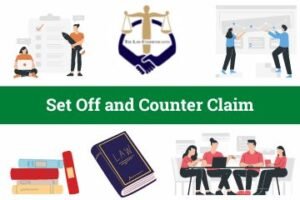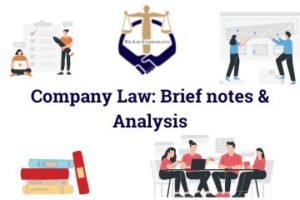Freedom of speech and expression and What restrictions can be applied to it?
Freedom of speech and expression is the most basic of all freedoms granted to the citizens of India. J Patanjali Shastri has said in the case of Romesh Thaper vs State of Madras AIR 1950 SC that freedom of speech and that of the press lay at the foundation of a democratic society, for without free political discussions, no public education is possible, which is so important for the proper functioning of the govt.
It allows us to freely express our ideas and thoughts through any medium such as print, visual, and voice. One can use any communication medium of visual representation such as signs, pictures, or movies. Freedom of speech would amount to nothing if it were not possible to propagate the ideas. Thus, the freedom of publication is also covered under freedom of speech. Freedom of speech serves 4 purposes –
- allows an individual to attain self-fulfillment.
- assists in the discovery of truth.
- it strengthens the capacity of a person to make decisions.
- it facilitates a balance between stability and social change.
This right is not only about communicating your ideas to others but also about being able to publish and propagate other people’s views as well. Thus, freedom of speech and expression is linked to the people’s right to know. Freedom of speech and expression is a broad term and encompasses several things. The following are important cases that have determined the extent of this right from time to time.
Right to Know
Prabhu Datt vs Union of India SC AIR 1982: SC held that right to know news and information about the functioning of the govt. is included in the freedom of the press.
Union of India vs Association for Democratic Reforms SC AIR 2002: SC held that people have the right to know about the candidate before voting. Thus, the law preventing the Election Commission from asking for a candidate’s wealth, assets, liabilities, education, and other such information, is invalid.
Right to tell and propagate
LIC vs Manubhai D Shah SC AIR 1992: In this case, Manubhai wrote an article in LIC’s magazine about the problems with LIC that affected policyholders. LIC published a response to that but did not give a chance to the public a rejoinder. SC held that LIC being a State as per Art 12, must publish his response. It also held that it does not mean everybody has a right to publish in a magazine and this right should be determined on a case-by-case basis.
Secretary, Ministry of I & B vs Cricket Association of Bengal SC AIR 1995: In this historic judgment, SC has held that one has the right to publicize his expression as well. A game of cricket is an expression and the organizers have a right to propagate it everywhere in the world. So Doordarshan must provide its uplinking facilities to CAB for transmitting the signals out of the country. Art 19 (2) does not allow restrictions on 19 (1) (a) on the grounds of creating a monopoly of the govt.
Tata Press Ltd. vs MTNL SCC 1995 SC: In this case, SC held that commercial advertisement is protected under freedom of speech.
Restrictions on Freedom of Speech and Expression
Every human desire to do many things. However, in civil society, such desires must be curbed to a certain extent in respect of similar desires of other human beings. Thus, no right is an absolute right. Art 19 (2) says that nothing in Art 19 (1) (a) shall affect the operation of any law or prevent the state from making any law, in so far as such law imposes reasonable restrictions on the exercise of the right conferred by the said clause in the interest of –
- sovereignty and integrity of the country.
- security of the state
- friendly relations with foreign states.
- public order
- decency and morality
- defamation
- contempt of court
- incitement of an offense.
In the original version of this article several grounds such as public order, friendly relations with foreign states, and incitement of offenses were not there. After the historic judgment in the case of Romesh Thaper vs State of Madras SC AIR 1950, these grounds were added. In that case, Madras Govt. prevented the entry and circulation of the new paper ‘Cross Roads’ published by Romesh Thaper, in the state of Madras. It argued that the circulation of paper affects public safety. However, SC held that the public safety falls outside the scope of 19 (2) and thus the govt action was invalid. This decision prompted the govt. to amend the constitution to include additional grounds as mentioned above.
It is important to note that the current clause mentions the words “reasonable restrictions”. Thus, any law restricting the freedom of speech and expression must satisfy the grounds mentioned in 19(2) and must also satisfy the criteria of reasonableness. Reasonable restriction means intelligent care and discussion that the restriction is not beyond what is required for the public interest. It should not be arbitrary and excessive. Further, the restriction can only be imposed by law and not by the executive or departmental decisions.
Test of reasonable restrictions
Spanning several cases, SC has laid down the following guidelines :
- It is the courts and not the legislature that will decide whether a law is reasonable or not.
- Reasonable means that the law is not arbitrary and the restriction is not beyond what is required in the public interest. The time and duration of the restriction cannot be unlimited.
- There is no fixed standard for reasonableness. Each case must be decided on its own merits.
- The restriction must be reasonable from a substantiative as well as procedural standpoint.
- Restrictions imposed due to the implementation of Directive Principles may be deemed to be reasonable.
- The test of reasonability must be objective in the sense that it does not matter what a Judge or Court thinks is reasonable but what a normal reasonable person would think.
- The restriction must have a relation to the object that is sought through the law and must not be excessive.
- It is the reasonableness of the restriction that a count has to determine and not the reasonableness of the law itself.
- Restriction may amount to a prohibition.
The following are important cases that have attenuated the scope of this right.
CPI (M) vs Bharat Kumar AIR 1998 SC: In this case, SC has held that bundhs called by various political parties are illegal because they prevent the citizens from exercising their right to freedom. I
Ranjit Udeshi vs the State of Mah. AIR 1965 SC: In this case, a bookseller was prohibited from selling books containing obscene material.
Hamdard Dawakhana vs Union of India AIR 1960 SC: In this case, SC held that obnoxious and fraudulent advertising is not protected under freedom of speech.
Critical Analysis
Freedom of speech and expression is indeed the most important of all freedoms. However, today, this right is being routinely suppressed under the guise of morality and decency or public order. Even a slight criticism of a public leader or past king causes the political parties to involve in damage to public property. Any book that talks about problems in religion are banned in the name of public order. It is extremely unfortunate that the executive, instead of upholding peoples’ right to speech and expression by preventing unscrupulous elements from hurting the author, is more interested in stifling the voice by banning their works. By doing this they are not doing their job responsibility.
Keywords: Freedom of Speech and Expression, Freedom of Speech and Expression in India, Freedom of Speech and Expression and Restrictions, Freedom of Speech and Expression in Indian Constitution. Freedom of Speech and Expression and its Legal Validity.
Click here to read the Bare Act of the Indian Constitution




